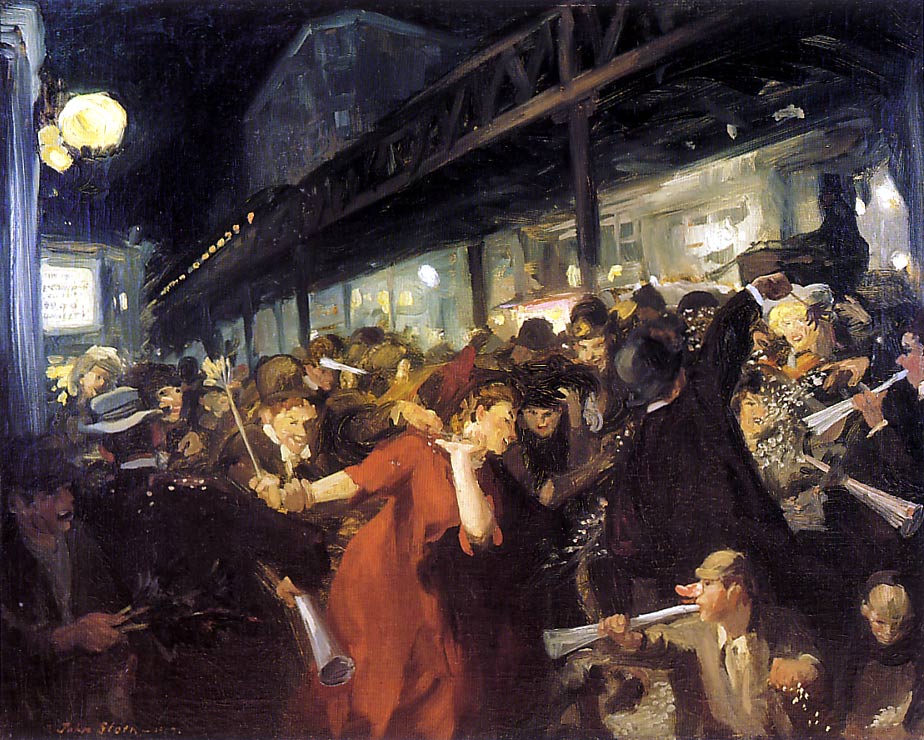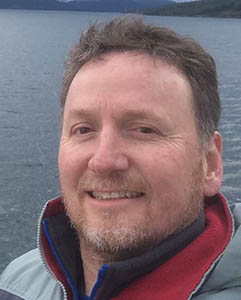
Img:
Election Night, John French Sloan, 1907
Repairing the Social Traumas of the Chilean Dictatorship
Why only recognition and validation can truly heal
On September 11, 2023, it will be fifty years since the Coup d'État in my country, Chile. With massive violations of human rights during the Pinochet dictatorship, a traumatic social fracture was generated that has not yet been repaired. The traumatic has deeply determined us as a country and will not be fully healed without genuine recognition and validation of past suffering.
In my clinical practice, for many years I have been in contact with people who suffered as a result of the state terrorism of the Pinochet dictatorship, in the second- and third-generation.
What we understand at the individual level as a defensive dissociated state as a result of trauma falls unconsciously, with vivid intensity, on the therapeutic bond. This occurs through enactments created jointly, between patient and analyst. Listening to life stories, intuiting together those that still do not have words, and giving them a space in the imaginable, with affective honesty, validating each other, has been the path to mutual reparation in psychoanalysis. In this way, the practice of psychoanalysis can be felt and experienced as liberating and constructive.
Together with many colleagues from my country, we think that, in order to repair the social traumas caused by the dictatorship, it is necessary to recognize what happened. Specifically, there must be recognition from a sector of society of the brutality exerted by the agents of the State of the dictatorship against the progressive left.
The recognition that is needed goes beyond the efforts of the Rettig Report (1991) and the Valech Report I and II (2004 and 2011). We need a recognition that includes the end of the denial or justification of the crimes that occurred during the dictatorship. And, above all, the recognition and validation of the different experiences of the survivors, as well as their second and third-generation relatives. Without the recognition and validation of their life stories, the collective trauma will continue to exert from the shadows the telluric energy that at a certain moment will express itself as a social earthquake.
On October 18, 2019, a social outburst began. From Santiago, it quickly spread to the main cities of the country. A telluric movement that eliminated the foundations of a society that was growing economically, but whose population, for the most part, was being left out of the benefits of that growth.
Almost a month later, on November 15, 2019, the Peace Agreement was signed between different political parties, who promised to make reforms to the Constitution to carry out a plebiscite where the citizens would decide if they wanted to continue being regulated by the Constitution of 1980. That Constitution was made by a group designated by the dictator Pinochet and ratified in a plebiscite that did not give democratic guarantees: full dictatorship, non-existence of electoral registers, banned political parties, and all the communicational apparatus in the hands of the dictatorial regime.
On October 25, 2020, the plebiscite was held. The result was that 78.8% of voters opted for a new Constitution, with 79% preferring that all the representatives who would write the new Constitution should be elected and that there should be gender-parity criteria and seats reserved for indigenous peoples. Then, in May 2021, the citizens voted for their representatives to build the new Constitution.
The constitutional process suffered a setback in September of this year when the draft of the new Constitution was rejected by voters.
Just over 13 million citizens voted, including 5 million new voters. The "rejection" option won with 61.86%. Political analysts suggest that the factors that influenced the defeat of the “approve" option included misinformation, fake news, and the disconnection of the work of the constitutional convention with the popular citizen base.
Gabriel Boric Font, the youngest President in the republican history of our country, assumed the presidency of the Republic on March 11 of this year, with 56% of the votes. He represents the progressive coalition “Apruebo Dignidad”, composed of the Frente Amplio (Broad Front) and the Partido Comunista (Communist Party), whose Government Program collected the most heartfelt demands of the population during the social revolt. The President's concern for the population's mental health is well known, and he has committed more resources to its management and treatment.
The Government of President Boric is working together with the presidents of the Chamber of Deputies and Senators, as well as with representatives of the political parties, to agree on when and how the constitutional process will continue.
While the political process that is unfolding presents many hopeful signs, we must learn from what psychoanalysis teaches us about trauma. As a society, we must openly face the past in a way that allows for the proper recognition and validation of points of view that have remained silenced far too long.
 Author: Francisco Vásquez Ramírez
Author: Francisco Vásquez Ramírez
Francisco Vásquez Ramírez is a medical psychiatrist trained at the University of Chile and a psychoanalyst trained in the Psychoanalytic Association of Chile. He is a founding member of the Santiago Psychoanalytic Association (APSAN), current Study Group of the API, and Vice President of its Board. He is a professor in several seminars of Analysts in Training at the Institute of Psychoanalysis APSAN.

Return to
Everyday Psychoanalysis Blog